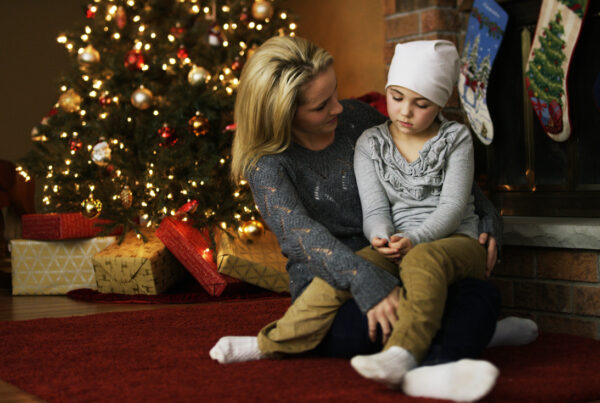By: Bob Bertsch
Over the past couple of months, we’ve had the opportunity to talk with the authors of the three virtual courses that will be part of the 2022 Military Family Readiness Academy (MFRA) – “Family Well-being: Navigating the Social Justice Landscape.”
Social justice is critical to our work. We focus on building skills for relationship building, collaboration, and personal growth, so that we all can become more resilient and adaptive in our complex and changing world. To do that we need diverse perspectives to address the complex issues we face in our communities and on our planet. As Dr. S. Atyia Martin points out in her book, “We Are the Question + the Answer,” racism and other forms of oppression dehumanize members of our communities causing their talent to be overlooked and the opportunity to collaborate with them to be lost.
With that in mind, we spoke with the authors on our podcast, “Practicing Connection.” Here are three important insights we gained from those conversations.
Self-reflection and recognizing interconnectedness are key to our social justice work.
In the podcast episode, “Social Justice and Family Well-being,” we spoke with Shawn Trenell O’Neal, author of the 2022 MFRA course, “Introduction to Social Justice Lenses for Family Well-Being.” Shawn is a DJ, musician, and sound engineer, whose Ph.D. research at the University of Colorado – Boulder examines the “processes of colonization and settler colonialism and its effects on cultural components such as visual art and music.”
We asked Shawn about the importance of knowing ourselves as we enter into social justice conversations. Shawn said,
“That (self-reflection) could be a very difficult and frightening thing, but it’s absolutely necessary. If we’re wanting to be the best we can be, we have to start unpacking who we are. I know I had to start doing that. It means to be very frank and very revealing. I feel like my life depended on it, that I have to start being better. Whatever that means doing better, having better understanding, have a different level of compassion and empathy, period. Just the realization of how crucial that is because realizing how interconnected we all are and what I do affects others, Yes. Very, very important.”
Knowing ourselves helps us recognize our cultural perspectives and how they may influence our thinking and behavior. This kind of insight into our beliefs and motivations can help us cultivate relationships and practice the humility that comes with realizing we are all interdependent.
Transformative relationships are at the foundation of all our work towards social justice and all positive change.
Allison Demarco is the author of the 2022 MFRA course, “What Can Family Service Providers Do to Recognize and Respond to Inequities?” She joined us for the podcast episode, “Recognizing and Responding to Inequity. Allison is an advanced research scientist at Frank Porter Graham Child Development Institute and adjunct faculty at the School of Social Work at The University of North Carolina at Chapel Hill. Her research focuses on racial equity, poverty, neighborhood effects, work and family, and well-being for residents of rural communities.
We were talking with Allison about how we can be in the kind of relationships that allow us to do important work together when she shared this,
“I feel like that is the foundation of all this work. It’s the foundation of the work to end poverty, it’s the foundation of the work to end homeless, to work and talk about racial equity and racism.”
Eduardo Gonzalez, Jr. also talked about relationships when we talked with him and his co-authors of the 2022 MFRA course, “Social Justice and Military Families,” in the podcast episode of the same name. Eduardo was sharing the “Four Pivots“ outlined by Dr. Shawn Ginright in the book, The Four Pivots: Reimagining Justice, Reimagining Ourselves. Eduardo said,
“He (Dr. Shawn Ginright) also talks about connection. He talks about connection specifically in the form of moving away from transactional to transformative relationships. As I mentioned earlier on, when we talk about transformative relationships, what we’re really talking about is really digging deeper into the human connection we share and doing that by way of listening attentively, listening generously, practicing empathy, modeling vulnerability in the ways in which we show up in the relationships that we have with one another.”
These transformational relationships provide the foundation for our shared work on social justice issues. In her “Shared Work” model, Tuesday Ryan-Hart points out that inevitably we will have to talk about difficult issues and conflicts in our work. When we do, “Relationship is Resolution.” It is our connection with and commitment to each other that will help us navigate these rough waters.
Social justice is love, safety, and belonging.
In the podcast episode, “Social Justice and Military Families,” we talked with Eduardo Gonzalez, Jr., Julika von Stackelberg, and Keith Tidball, co-authors of the “Social Justice and Military Families” course previously mentioned. All three authors work for Cornell Cooperative Extension. Eduardo is the assistant director for diversity equity and inclusion. Julika is a family and community resilience educator in Orange County, New York. Keith is a social scientist in the Department of Natural Resources and the Environment.
We enjoyed a lively conversation filled with great takeaways, but what Eduardo said about his view of social justice really struck a chord,
“What I discovered was that it was a lifelong internal process, an internal process that is also predicated on an understanding that for me, justice equates in many ways love, it equates safety, it equates to belonging. In many ways, what that meant was bringing myself into sharper view by digging and asking those questions and seeking out sources to figure out who I was and to determine who I was across those identities that I shared on my own terms and not on what others expected of me.”
The simplicity of this was really striking. When we think of social justice, it is sometimes overwhelming to face the injustices embedded in our policies and systems, to say nothing of the individual acts of dehumanization people face every day. While all of these issues and actions need to be addressed in our journey toward social justice, behind it all is the need each of us has to feel loved, feel safe, and feel that we belong.
– Jessica Beckendorf and Bob Bertsch












